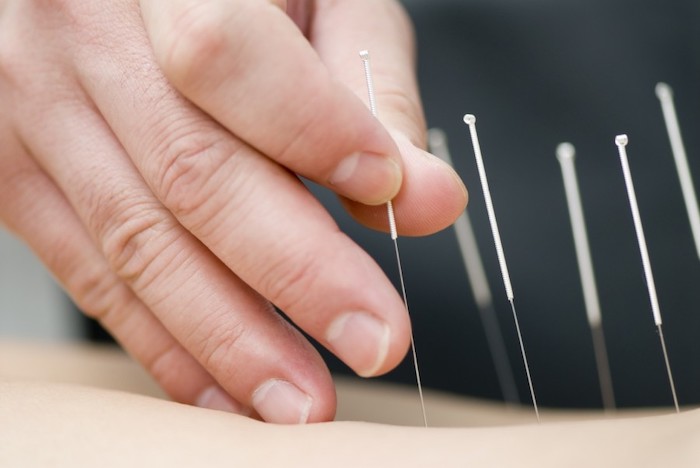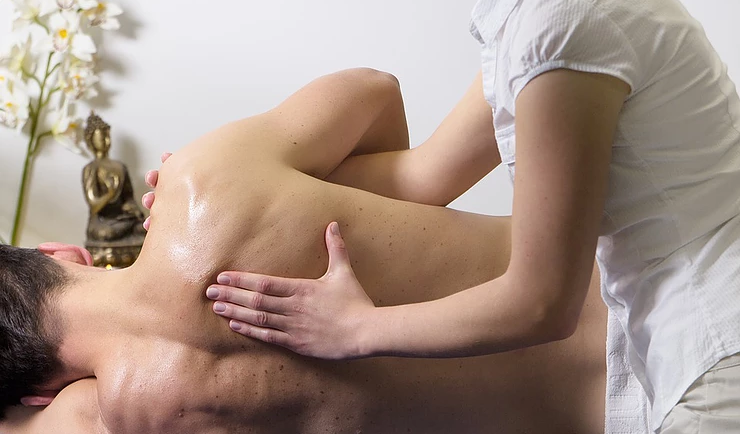Acupuncture & Chinese Medicine
Acupuncture is a traditional Chinese medical practice that involves inserting thin needles into specific points on the body to balance the flow of energy (Qi) and promote healing.
Acupuncture has been practiced for more than 3000 years as part of traditional Chinese medicine. The practice is based on the Taoist philosophy, which emphasizes the balance between yin and yang, the two opposing forces in the universe.
Acupuncture aims to restore balance and flow of Qi along the body’s meridians, which triggers the body’s ability to heal itself. From a Western perspective, it may stimulate nerves, muscles, and connective tissue, boosting the body’s natural painkillers and increasing blood flow.

Frequently Asked Questions
What conditions can acupuncture treat?
Acupuncture is commonly used for pain relief (e.g., back pain, headaches), stress reduction, and various health issues such as digestive problems, respiratory disorders, menstrual cramps, and infertility.
In 2002, World Health Organization (WHO) identified 28 conditions for which acupuncture was found to be effective, and nearly 100 other conditions where there was a therapeutic effect.
Is there scientific evidence supporting acupuncture?
A review of clinical trial publish by WHO in 2002 states that acupuncture has therapeutic effects on more than 100 conditions.
Are there any side effects of acupuncture?
When performed by a trained professional, acupuncture is generally safe with minimal side effects. Some people might experience minor bruising, soreness, or light bleeding at needle sites.
Who should avoid acupuncture?
People with bleeding disorders or who are taking blood thinners should consult their doctor before trying acupuncture. Pregnant women should inform their practitioner, as certain acupoints should be avoided during pregnancy.
Is acupuncture painful?
Most people experience minimal discomfort when the needles are inserted. Some may feel a slight pinch, tingling, or a dull ache, but the sensation is generally mild and temporary.
What happens during an acupuncture session?
The practitioner will assess your condition and insert needles into specific acupoints. You will lie still for 20-30 minutes with the needles in place. The practitioner may manipulate the needles or apply heat or electrical stimulation.
How should I prepare for an acupuncture session?
Wear loose, comfortable clothing. Avoid heavy meals or vigorous exercise before the session. Inform the practitioner of any medications, allergies, or health conditions.
What should I do after an acupuncture session?
Rest and stay hydrated. Avoid strenuous activities, alcohol and spicy foods between the sessions. Pay attention to how your body responds and inform your practitioner of any significant changes.
How many acupuncture sessions will I need?
The number of sessions varies depending on the condition being treated, its severity, and the individual’s response to treatment. Some conditions may improve after a few sessions, while chronic issues might require ongoing treatment.
How do I find a qualified acupuncture practitioner?
Look for a licensed and certified acupuncturist. You can check professional organizations like Australian Health Practitioner Regulation Agency (AHPRA).
Is acupuncture covered by insurance?
Coverage varies by insurance plan and provider. Some health insurance plans cover acupuncture, especially for pain management and certain medical conditions. Check with your insurance provider for details.
Can acupuncture be combined with other treatments?
Yes, acupuncture is often used alongside other treatments, such as medication, physical therapy, or chiropractic care, to enhance overall effectiveness.
Can acupuncture help with mental health issues?
Acupuncture is often used as a complementary therapy for mental health issues such as anxiety, depression, and stress. It is believed to help by promoting relaxation and balancing the body’s energy.
If you have further questions which have not been answered here, be sure to head over to our FAQ section on our website.

Trial Massage available
HEALTH FUND REBATES APPLY
Please Note
If the therapist feels that the session has turned sexual for the client, male or female, he/she may stop the session to clarify the client’s intent, and may decide to end the session immediately.
